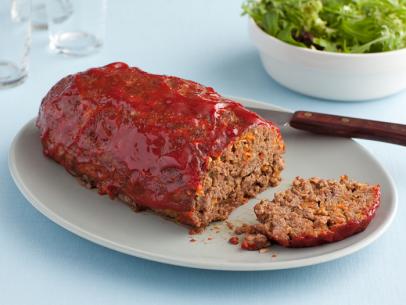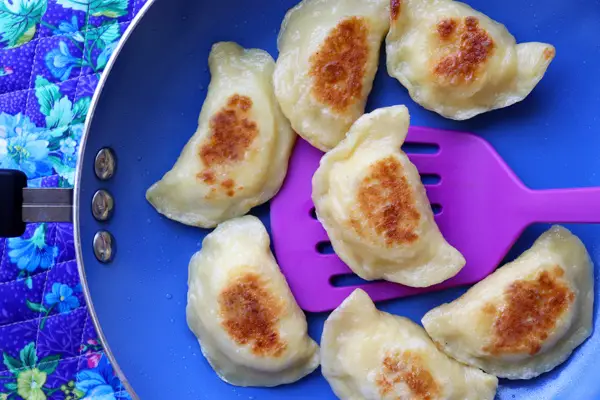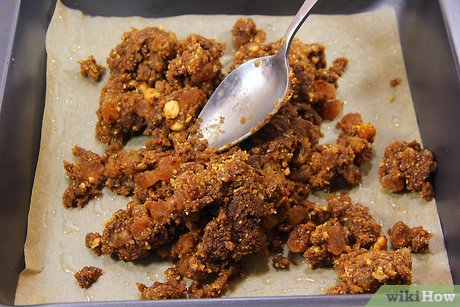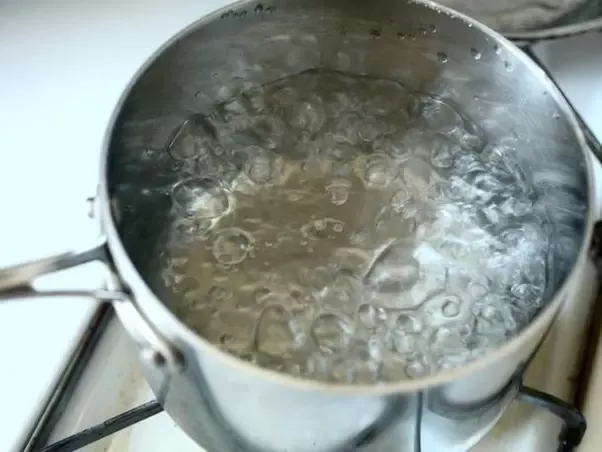Hard boiled eggs can sometimes develop a yellow color, which may be concerning to some individuals. This discoloration is usually harmless and caused by a chemical reaction between sulfur from the egg white and iron from the egg yolk. This reaction forms ferrous sulfide, resulting in a greenish-gray ring around the yolk. Overcooking the eggs or using water with a high iron content can contribute to this discoloration. However, it is important to note that the yellow color does not affect the safety of the eggs and they can still be consumed without any issues.
Key Takeaways:
- Yellow discoloration in hard boiled eggs is caused by a chemical reaction between sulfur and iron.
- Overcooking the eggs or using water with high iron content can enhance the discoloration.
- The yellow color does not affect the safety of the eggs and they can still be consumed.
- Preventing discoloration involves proper cooking techniques and rapid cooling.
- Discolored eggs are safe to eat as long as they do not have an off odor.
Causes of Egg Discoloration
When it comes to egg discoloration, there are several factors that can contribute to the yellow tint observed in hard boiled eggs. One of the main causes is a reaction between the sulfur and iron present in the egg. This reaction forms ferrous sulfide, which gives the egg whites a greenish-gray ring and contributes to the overall discoloration. Overcooking the eggs or using water with a high iron content can enhance this reaction and result in more pronounced discoloration.
Not only can cooking techniques affect egg discoloration, but the diet of the chicken can also play a role. Chickens that consume foods rich in riboflavin, such as corn or carrots, may produce eggs with a yellowish tint in the egg whites. Additionally, the age of the eggs and their storage conditions can impact their color. Eggs that have been stored in suboptimal conditions may exhibit discoloration.
If we were to summarize the causes of egg discoloration, it would be the reaction between sulfur and iron, overcooking or high iron content in cooking water, chicken’s diet, and aging in suboptimal conditions. Now let’s take a closer look at these factors in the table below:
| Cause | Description |
|---|---|
| Reaction between sulfur and iron | Chemical reaction that forms ferrous sulfide and leads to discoloration |
| Overcooking or high iron content in cooking water | Enhances the sulfur and iron reaction, resulting in more pronounced discoloration |
| Chicken’s diet | Consuming foods high in riboflavin can contribute to a yellowish tint in egg whites |
| Aging in suboptimal conditions | Storing eggs in improper conditions can cause discoloration |
Understanding the causes of egg discoloration can help us take appropriate measures to prevent it. In the next section, we will explore some effective techniques for avoiding egg discoloration when hard boiling eggs.
Preventing Egg Discoloration
When it comes to preventing egg discoloration, there are a few key techniques that can help you achieve vibrant, visually appealing hard boiled eggs. The first and most important step is to avoid overcooking the eggs. Overcooking can contribute to the formation of a greenish-gray ring around the yolk, which can be unappealing. It is crucial to cook the eggs for the appropriate amount of time and not exceed it.
Rapidly cooling the cooked eggs is another effective way to prevent further discoloration. Once the eggs are cooked, you can run them under cold water or place them in an ice bath to cool them down quickly. This helps to halt any chemical reactions that can lead to discoloration.
Proper storage of hard boiled eggs is also essential for maintaining their quality and color. After cooking, it is recommended to store the eggs in the refrigerator until you are ready to use them. This helps to preserve their freshness and prevent any potential color changes.
Additional Tips for Preventing Egg Discoloration
Along with the techniques mentioned above, here are a few more tips to help you avoid egg discoloration:
- Use fresh eggs: Fresh eggs are less likely to develop discoloration compared to older eggs.
- Use vinegar: Adding a tablespoon of vinegar to the cooking water can help prevent discoloration by neutralizing any iron in the water.
- Avoid high iron water: If you have water with a high iron content, consider using filtered or bottled water for cooking your hard boiled eggs.
| Technique | Effectiveness |
|---|---|
| Avoid overcooking | High |
| Rapidly cool cooked eggs | High |
| Store in the refrigerator | High |
| Use fresh eggs | Moderate |
| Add vinegar to cooking water | Moderate |
| Avoid high iron water | Moderate |
By following these cooking techniques and tips, you can enjoy beautifully cooked hard boiled eggs without any discoloration. Remember, while discoloration may not be visually appealing, it does not impact the safety or taste of the eggs.
The Safety of Discolored Eggs
Despite their unappealing appearance, discolored eggs are generally safe to consume. The yellow color in the egg whites does not indicate spoilage or any health risks. As long as the eggs do not have an off or foul odor, they can still be eaten without any concerns. It is important to rely on our senses, such as smell, rather than appearance when determining the freshness and safety of eggs.
The yellow color in discolored eggs is typically caused by a chemical reaction between sulfur from the egg white and iron from the egg yolk. This reaction forms ferrous sulfide, resulting in a greenish-gray ring around the yolk. While it may not be visually appealing, it does not affect the quality or safety of the egg. Once the eggs are cooked, the yellow color will dissipate, and the egg whites will revert to their normal white color.
To ensure the safety of consuming discolored eggs, it is recommended to follow proper storage guidelines. Storing hard boiled eggs in the refrigerator until ready to use can help maintain their freshness and quality. If you are unsure about the safety of an egg, it is best to err on the side of caution and discard it. Trusting our senses and being mindful of proper storage practices will help ensure that we can enjoy the nutritional benefits of eggs without any concerns.
| Safety of Discolored Eggs | Key Points |
|---|---|
| Appearance | Yellow discoloration in egg whites is generally safe and does not indicate spoilage or health risks. |
| Odor | If the eggs do not have an off or foul odor, they can still be consumed. |
| Chemical Reaction | Yellow color in discolored eggs is caused by a chemical reaction between sulfur and iron. |
| Storage | Properly storing hard boiled eggs in the refrigerator can help maintain their freshness and quality. |
Egg Freshness and Storage
Ensuring the freshness of eggs is crucial for both safety and quality. By checking the dates on the egg packaging, you can determine whether the eggs are still fresh. Take note of the pack date and the sell-by date, as they provide important information about the eggs’ freshness. As a general guideline, eggs can be consumed up to five weeks past the pack date, as long as they are properly stored. The sell-by date falls within this timeframe but is not an expiration date.
Although date labels are a good starting point, it’s also important to use your senses to assess egg freshness. If an egg has an unpleasant odor or shows signs of discoloration or unusual markings on the shell, it may indicate that the egg has gone bad. Fresh eggs should have a clean and unblemished shell.
While the “floating egg” test is a popular method, it is not a reliable indicator of egg freshness and should not be solely relied upon. Instead, focus on proper storage practices. Storing eggs in the refrigerator at temperatures below 45°F (7°C) helps maintain their freshness and extends their shelf life. Additionally, keeping eggs in their original carton can protect them from absorbing odors from other foods in the refrigerator.
By following these guidelines and using a combination of date labels and sensory evaluations, you can ensure that your eggs are fresh and safe to consume. Incorporate eggs into your diet with confidence, knowing that you are enjoying a versatile and nutritious food.
Table: Egg Storage Recommendations
| Storage Method | Recommended Temperature | Recommended Duration |
|---|---|---|
| Refrigerator | Below 45°F (7°C) | Up to 5 weeks past pack date |
| Original Carton | – | – |
| Freezer | Below 0°F (-18°C) | Up to 1 year |
Conclusion
In conclusion, the occasional discoloration of hard-boiled eggs is a common occurrence and usually harmless. The yellow color in the egg whites is the result of a chemical reaction between sulfur and iron, forming ferrous sulfide. Factors such as overcooking the eggs or using water with a high iron content can contribute to this discoloration. However, it is important to note that the yellow color does not affect the safety or quality of the eggs. They can still be consumed without any issues.
To prevent egg discoloration, it is crucial to avoid overcooking the eggs and to follow the appropriate cooking time. Rapidly cooling the cooked eggs can also help prevent further discoloration. Storing the hard-boiled eggs properly in the refrigerator until ready to use can help maintain their quality and color.
While discolored eggs may not look as appealing, they are generally safe to eat as long as they do not have an off odor. The yellow color will dissipate once the eggs are cooked, and the egg whites will revert to their normal white color. It is important to rely on your senses, such as smell, rather than appearance when determining the freshness and safety of eggs. Don’t let discoloration deter you from enjoying the many benefits of eggs as part of a balanced diet.
FAQ
Why do hard boiled eggs turn yellow?
Hard boiled eggs can turn yellow due to a chemical reaction between sulfur from the egg white and iron from the egg yolk. This reaction forms ferrous sulfide, resulting in a greenish-gray ring around the yolk. Overcooking the eggs or using water with a high iron content can contribute to this discoloration.
What causes egg discoloration?
Egg discoloration can be caused by the reaction between sulfur and iron in the egg, overcooking the eggs, using water with a high iron content, the chicken’s diet, or aging of the eggs in suboptimal conditions.
How can I prevent egg discoloration when hard boiling them?
To prevent egg discoloration, avoid overcooking the eggs and cook them for the appropriate amount of time. Rapidly cooling the cooked eggs by running cold water over them or placing them in an ice bath can also help prevent further discoloration. Storing the hard boiled eggs in the refrigerator until ready to use can maintain their quality and color.
Are discolored eggs safe to consume?
Yes, discolored eggs are generally safe to consume. The yellow color in the egg whites does not indicate spoilage or any health risks. As long as the eggs do not have an off or foul odor, they can still be safely eaten.
How can I ensure the freshness of eggs?
To ensure the freshness of eggs, check the dates on the egg packaging. Pay attention to both the pack date and the sell-by date. Eggs can generally be consumed up to five weeks past the pack date. If the egg has an unpleasant odor or shows signs of discoloration or unusual markings on the shell, it may indicate that the egg has gone bad. The “floating egg” test is not a reliable indicator of freshness.
Should the appearance of discolored eggs deter me from consuming them?
No, the yellow discoloration in egg whites is generally harmless and does not affect their safety. It is important to rely on your senses, such as smell, rather than appearance when determining the freshness and safety of eggs.



